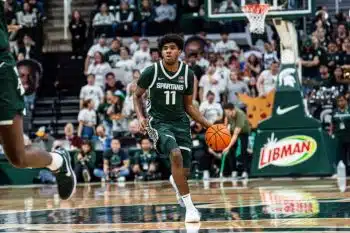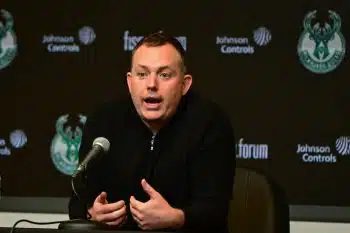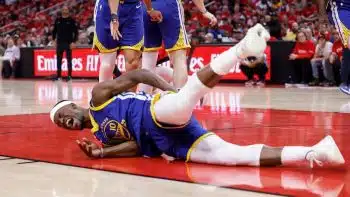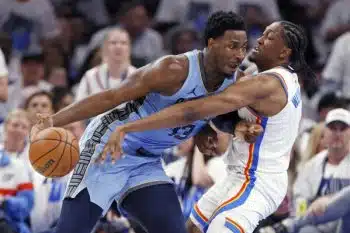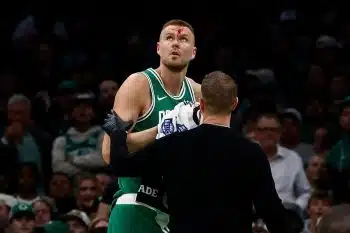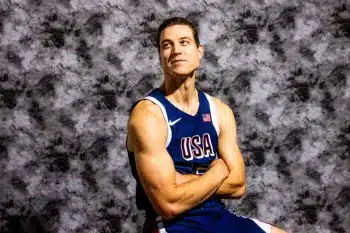NBA
Head to Head: Biggest Free Agent Mistake
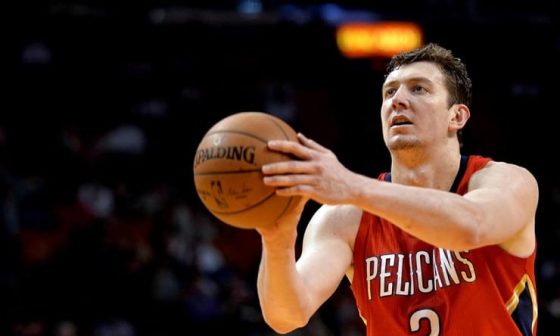
Oftentimes when a notable free agent signing or trade is made, NBA fans and members of the media offer quick opinions on whether the deal was good or bad. However, there are a lot of deals that initially seem like home-runs, but turn out to be crippling for teams. In today’s Head to Head, Tommy Beer, Eric Pincus and Alex Kennedy discuss the biggest free agent mistakes that teams made this past offseason.
To help you make an informed decision, we’ve put together an in-depth look at the ten best sportsbooks accepting US players and explain what sets them apart.
On the first day negotiations between teams and free agents was allowed this past offseason, it was announced that the Oklahoma City Thunder had agreed to a five-year extension with Kyle Singler worth approximately $24 million.
There were far more expensive contracts handed out this past summer. However, there were no deals that were longer, as five years is the maximum number of years allowable under the current collective bargaining agreement. Still, with the salary cap set to spike, this deal certainly won’t break the bank in Oklahoma City. Singler will account for only a fraction of their cap going forward.
The young forward out of Duke had played decently over his first three seasons in the NBA, so OKC was assuming that they would lock up a serviceable, reliable rotation player for the long-term at a fair price.
However, the issue in Oklahoma City is that Singler has been anything but reliable. In fact, Singler is struggling mightily. The numbers are downright right scary. He’s not just having a rough season, Singler is enduring a historically bad season.
Over the 292 minutes he’s played during the 2015-16 campaign, he is shooting just 29.2 percent from the floor, 22.2 percent from three-point territory and 50 percent from the free-throw line. Consider this: Per Basketball-Reference.com, Singler is on pace to become the first NBA player in 55 years to average over 10 minutes per game, yet shoot below 30 percent from the floor and post a True Shooting Percentage south of 37 percent. He also may become the first qualifying player in NBA history to ever shoot below 24 percent from three-point territory and below 30 percent from the field in the same season.
His assist to turnover ratio sits at 6:15, which means he has 2.5 times as many turnovers as assists.
His PER right now sits at at roughly 2.2, which is an unbelievably low figure since the league average is 15. Per Basketball-Reference.com, never before has an NBA player finished a season with a PER below 3 when they appeared in at least half of their team’s games and averaged at least 10 minutes per game.
His individual Offensive Rating (an estimate of points produced per 100 possessions) is just 75. No other Thunder rotation player has an offensive rating below 97.
Singler’s On/Off splits are similarly remarkable. The Thunder are averaging 114.2 points per 100 possessions when he is on the bench. That number drops all the way down to down to 101.2 points per 100 possessions when Singler is in the game.
Maybe this is just an awful slump that Singler will bust out of in the second half of the season. The Thunder have to hope so.
Although Singler will “only” make in the neighborhood of $5 million per season, and the cap is set to jump, the Thunder will still obviously need all the salary space they can muster. As we know, Kevin Durant will be an free agent this upcoming summer. Then, in July of 2017, both Russell Westbrook and Serge Ibaka will hit the open market. Will that $24 million committed to Singler come back to bite OKC?
– Tommy Beer
The New Orleans Pelicans’ initial mistake was trading a first-round pick to the Houston Rockets for Omer Asik, which turned into the 18th pick and ultimately forward Sam Dekker.
Asik contributed to the Pelicans’ 45-37 season, just enough wins to reach the eight seed in the Western Conference, but the frontcourt paring of All-Star Anthony Davis and Asik wasn’t nearly as dominant defensively as it should have been.
Instead of letting Asik go in free agency, the Pelicans doubled-down, giving the big man a five-year, $53 million contract.
Through 28 appearances this season, Asik has averaged a team-low 2.8 points a game. He’s collecting 4.5 rebounds a night while playing just 16 minutes a game.
Asik is a particularly bad fit with new Pelicans head coach Alvin Gentry, who was an assistant under Mike D’Antoni in Phoenix with the Suns, which only makes the signing more perplexing – other than trying to justify the wasting of a draft pick.
The Pelicans (11-24) are one of the worst teams in the Western Conference and Asik, with his unnecessary long-term salary, hasn’t made enough of a contribution.
Bad fit, bad contract.
– Eric Pincus
By signing Tyson Chandler, the Phoenix Suns nearly landed one of the biggest free agents on the market this past summer. Shortly after inking his own deal, Chandler attended the Suns’ free agent meeting with LaMarcus Aldridge, who liked the move and admitted that his decision came down to Phoenix and San Antonio.
While adding Chandler certainly helped the Suns’ pitch – since it showed knew that Aldridge wanted to play alongside a defensive-minded center and that they were determined to win now – Aldridge still decided to sign with the Spurs.
Now, because the Aldridge gamble didn’t pay off, the young Suns squad is stuck with a 33-year-old Chandler on a four-year contract worth $52 million.
This wouldn’t necessarily be a bad thing if Chandler was contributing at a high level, but he has struggled mightily early in his stint with the Suns. As of this writing, Chandler is averaging 5.4 points, 7.1 rebounds and .6 blocks – the worst stat line of his 15-year NBA career.
While hindsight is 20/20, it’s not like this is a huge surprise given Chandler’s age and the fact that he has always played his best basketball in contract years and then come back down to earth shortly after.
The fit is also strange, since Phoenix is still trying to develop Alex Len into their center of the future. Because of this, Chandler has come off of the bench for a number of games and he’s playing just 22 minutes a night.
In other words, Chandler hasn’t been the big offseason acquisition that Phoenix hoped they were landing. If anything, he has been a shell of his former self and is drastically overpaid since he’s making $13,000,000 this season.
Rather than taking Phoenix to the next level in the Western Conference, the team has played poorly. They are currently 13-26 (worse than last year), which puts them in 12th place in the Western Conference. After entering the year with playoff expectations, now it seems Phoenix’s best strategy may be trading off their veterans and taking a step back in their rebuilding plan.
There’s no question that Chandler has been a disappointment on the court and the fact that he’s owed so much money for three more seasons after this one makes him, in my opinion, one of the worst free agent signings of the summer.
– Alex Kennedy
